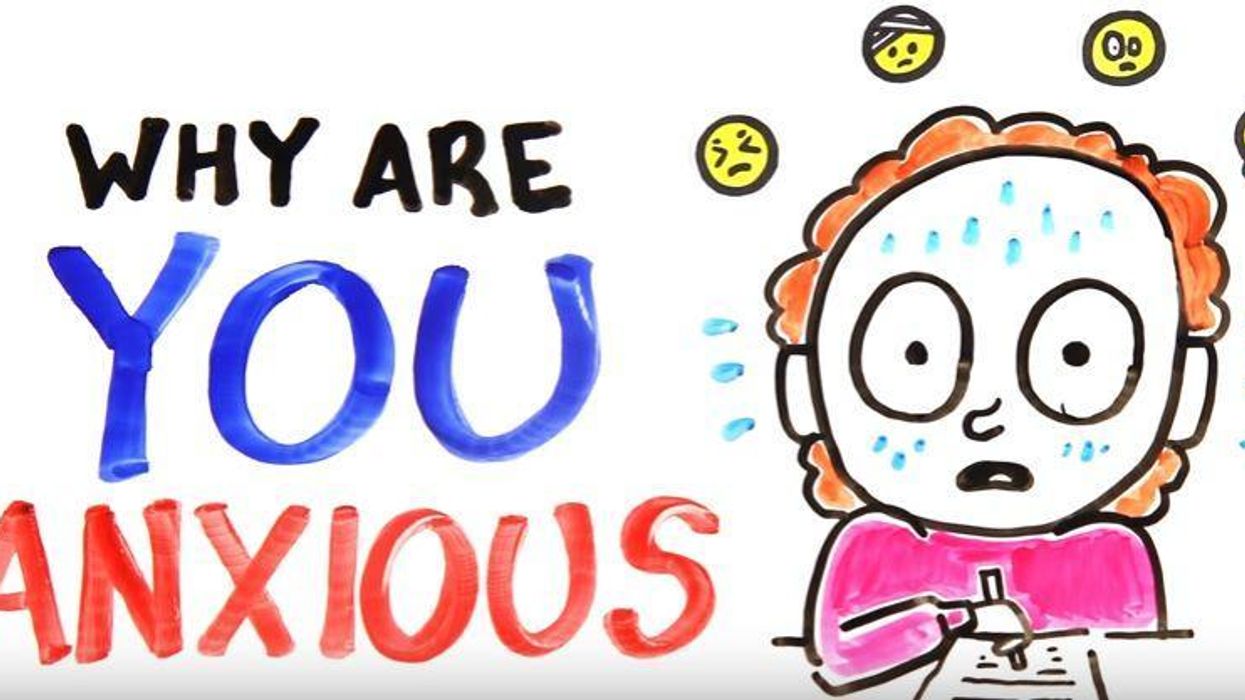
We've all experienced anxiety, whether before an exam or first date, or even during a horror film.
But for some people, anxiety can become disordered, meaning it's disproportionate to their environment and it can negatively affect their lives.
An AsapScience video has broken down where anxiety comes from.
The video explains that around seven million people experience generalised anxiety, which is “excessive anxiety” that occurs more days than not, for at least six months.
Symptoms can include disturbed sleep, irritability and muscle tension.
People with generalised anxiety, it says, can also experience panic attacks, which the video describes as:
Sudden and short episodes of intense fear that trigger a severe physical reaction like accelerated heart rate, shortness of breath and dizziness.
And 40 per cent of people with the disorder also have a relative with it.
The video goes on to say:
Anyone can experience a panic attack, whether or not they have an anxiety disorder, and it’s not always triggered by something known or specific.
It explains how we get anxiety:
Anxiety is partially triggered by the amygdala and hypothalamus controlling the circulation of cortisol and adrenaline in your body.
The video explains that, because of the high genetic link, it’s likely these hormone levels are linked to our genes.
Environment can also be a factor as certain anxiety disorders are related to traumatic childhood experiences.
Varying levels of neutron transmitters like GABA, serotonin and dopamine may also be to blame.
Serotonin, it explains, contributes to feelings of happiness by moving from neuron to neuron in the brain, passing through a gap called the synapse.
Any serotonin that isn’t used goes back to the original neuron.
But for those with something like OCD, a type of anxiety disorder, it’s been suggested that a mutation in these transporters creates a higher volume of returned serotonin before it’s had a chance to move to the receiving neuron, resulting in a decreased amount in the synapse, ultimately affecting your emotions.
Many anxiety disorders, it says, also have an overactive amygdala and periaqueductal grey area, which can affect our brains and bodies.
It concludes:
The neuro-chemical basis of anxiety is extremely complicated, and it’s not useful to tell somebody to just calm down or get over it.
Here's the full video:
More: An expert explains how to stop overthinking everything












